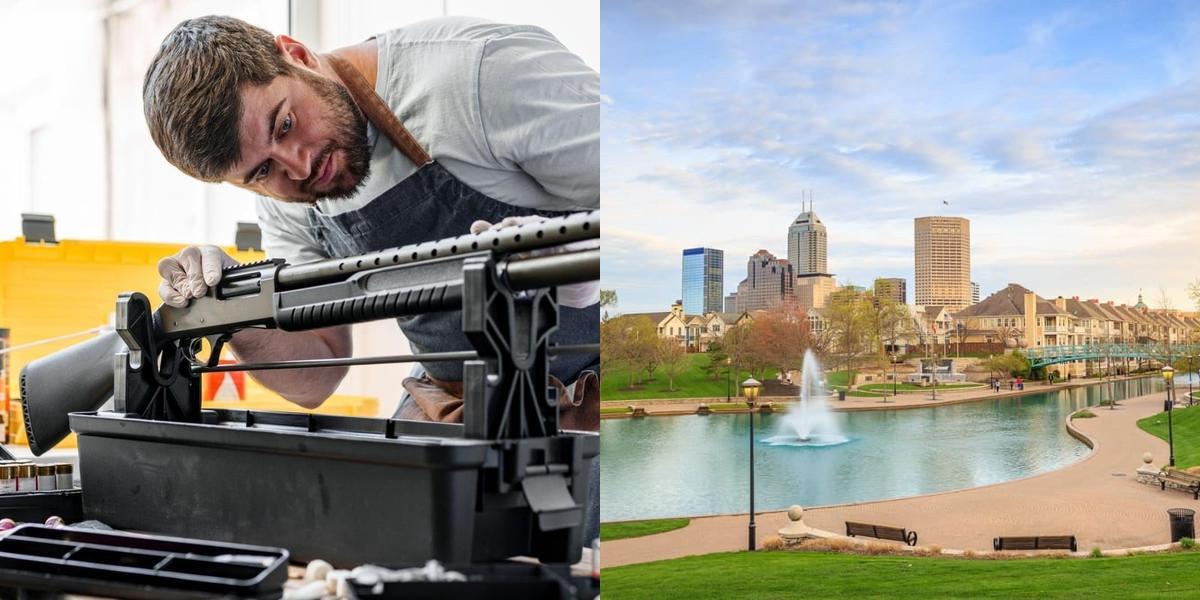How to Become a Gunsmith in Indiana

Gunsmiths repair, modify, and customize firearms with precision. If you’re interested in a career that blends craftsmanship with firearm technology, becoming a gunsmith in Indiana can be a rewarding path. This guide covers everything you need—from training and certification to salary and career options.
Where to Find Gunsmithing Classes in Indiana
Use Dreambound to search and compare programs based on:
- Tuition costs
- Schedule (in-person or online)
- Course content
- Reviews from students
Look for schools with strong hands-on training and job placement support.
How Long Does It Take to Become a Gunsmith?
- Short programs: 6–12 months (certificate/diploma)
- Associate degree: Up to 2 years
- Apprenticeship (optional): Adds 6–12 months of on-the-job experience
How to Get a Job as a Gunsmith in Indiana
Build a Portfolio
Document customizations, repairs, and builds from your training.
Apply to Gunsmithing Employers
- Gun shops and firearm retailers
- Firearm manufacturers
- Law enforcement departments
- Sporting goods stores
Use MyNextMove to explore job listings in Indiana.
Network in the Industry
Attend gun shows and connect with professionals. Join forums or associations like the AGI or NRA Gunsmithing Program.
Start Your Own Business
You can operate a solo gunsmithing shop or mobile service—just be sure to get your FFL and follow state and federal laws.
Career Paths and Opportunities
After training, you can specialize in:
- Repair technician – fix and maintain firearms
- Custom gunsmith – build and modify high-end firearms
- Manufacturer technician – assemble and inspect firearms
- Law enforcement armorer – maintain police weapons
- Firearm engraver – customize appearance and finish
- Shop owner – run your own business
How Much Does a Gunsmith Make in Indiana?
Gunsmiths in Indiana earn an average of $63,920 per year, according to the U.S. Bureau of Labor Statistics.
Source: BLS
Pay depends on experience, specialization, and business ownership. Custom or antique work can earn significantly more.
Final Thoughts
Becoming a gunsmith in Indiana is a smart move if you value craftsmanship, firearms, and working with your hands. Whether you choose to join a shop or open your own, you can build a fulfilling career with solid earning potential.
🎯 Ready to start? Compare gunsmith training programs in Indiana on Dreambound and take the first step today.
Looking for a better fit? These other articles could be more in line with your expectations if this one isn't precisely what you had in mind:

Joanna Paragas is part of the Growth team at Dreambound. Her primary role involves creating various automation to streamline workflows and make tasks more efficient for the entire team. Beyond her professional endeavors, Joanna enjoys spending her free time playing with her dogs and enhancing her knowledge by enrolling in online courses.



